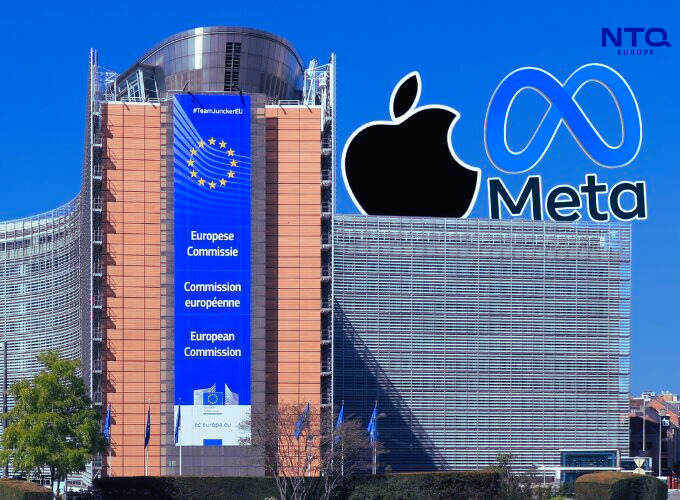Record Penalties Mark New Era in Digital Enforcement
According to internal insights and analysis from Politico, European regulators are intensifying their stance against dominant tech platforms. In the latest enforcement wave, the European Commission has issued unprecedented fines against several U.S.-based tech giants for violating antitrust laws. These penalties stem from findings that major platforms have abused their market power to suppress competition and stifle innovation across the EU’s digital economy.
The move represents more than just a policy shift. It signals the EU’s determination to establish a rules-based digital ecosystem where no company, regardless of scale, is exempt from scrutiny. Authorities target specific behaviors such as self-preferencing, forced bundling, and discriminatory platform practices that harm consumers and smaller tech firms. This signals the EU’s determination to establish a rules-based digital ecosystem where no company, regardless of scale, is exempt from scrutiny. Authorities target specific behaviors such as self-preferencing, forced bundling, and discriminatory platform practices that harm consumers and smaller tech firms.

Legal Clashes Reflect Growing Transatlantic Tensions
While the EU justifies these fines as part of long-standing legal frameworks like the Digital Markets Act (DMA), U.S. officials have voiced intense criticism. As Politico reports, some U.S. lawmakers. Particularly those aligned with former President Donald Trump, view these enforcement actions as politically motivated and discriminatory toward American businesses.
Tensions are growing not just over the scale of fines but over diverging regulatory philosophies. While Brussels emphasizes market fairness, Washington increasingly interprets Europe’s digital sovereignty efforts as protectionist. The result is a diplomatic tightrope: European regulators insist on legal objectivity, while American counterparts warn of trade retaliation or regulatory fragmentation.
Public Interest and Political Optics Collide
Behind the scenes, EU officials face mounting pressure to demonstrate that regulation can keep pace with innovation. Public trust in Big Tech has declined in recent years, especially amid growing concerns about data privacy, algorithmic bias, and platform monopolization. Politicians respond by positioning enforcement as a defense of democratic values and consumer rights.
According to Politico, however, some European critics fear the high-profile nature of these fines may risk politicizing the legal process. Balancing transparency, consistency, and due process has become crucial, mainly as Europe aims to establish itself as a global model for responsible digital governance.
A Broader Push for Digital Sovereignty
The fines are part of a broader push by the EU to assert control over its digital environment. With new legislation such as the Digital Services Act (DSA) and AI Act in motion, Brussels is not only regulating tech giants. It’s seeking to reshape the very norms of how digital markets function. This new legal clarity could level the playing field for European startups and enterprise software providers.
At the same time, the EU must navigate economic risks. Aggressive enforcement may discourage tech investment or spark retaliatory policies from the U.S. As Politico notes, the stakes go beyond fines: What’s unfolding is a test of whether regional regulation can truly influence global platform behavior, or whether it will lead to further digital decoupling.

Accountability is non-negotiable but cooperation must remain possible.
From our perspective, the EU’s assertiveness on digital fairness is both necessary and inevitable. A competitive and ethical tech ecosystem requires robust enforcement, especially when global platforms hold systemic power. However, the challenge lies in maintaining open channels for collaboration, innovation, and trust — particularly between partners like the EU and the U.S., who share more digital goals than they differ on. Long-term progress will depend on strong yet scalable rules that are principled yet pragmatic.
Source: Politico



















